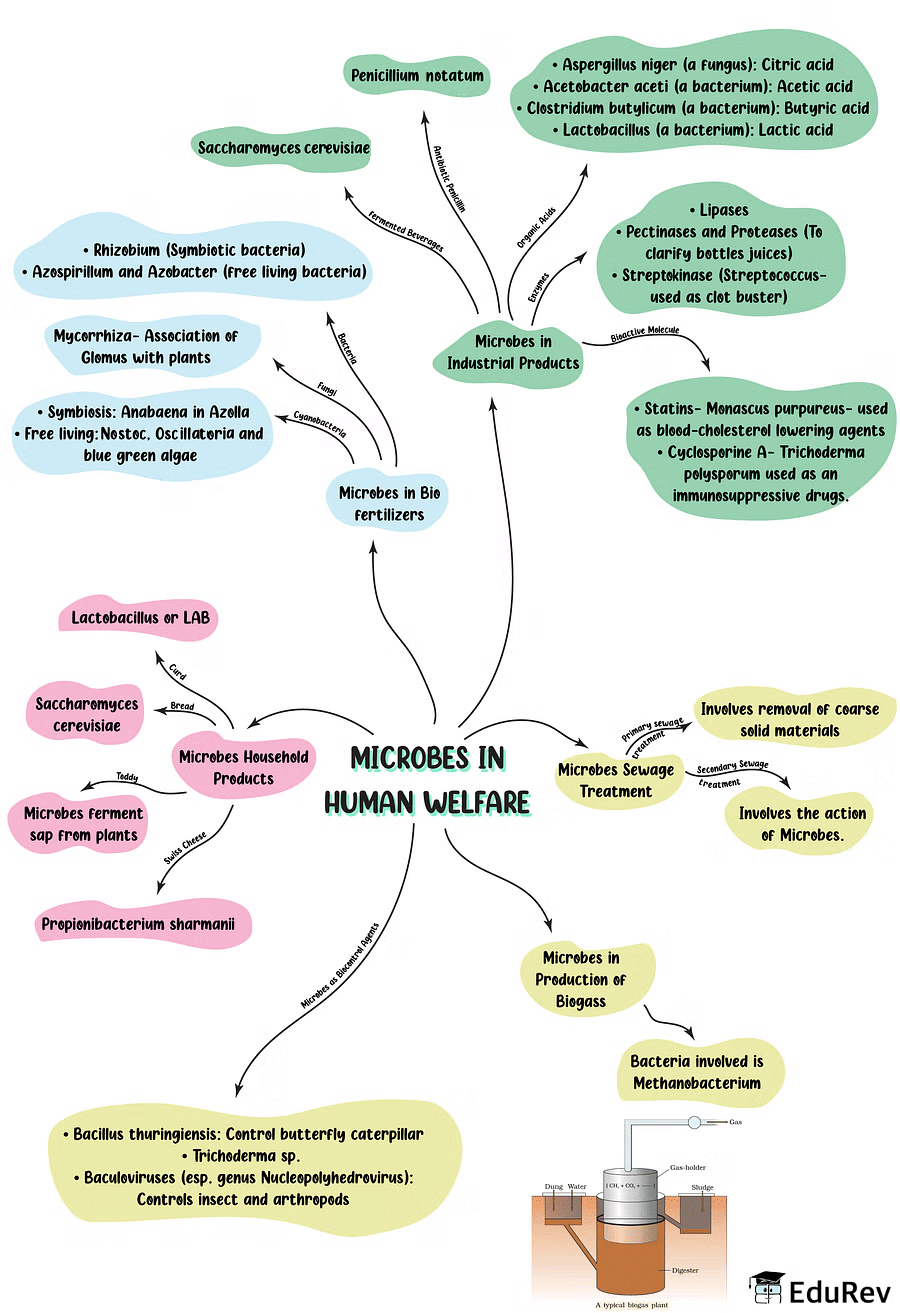NEET Exam > NEET Notes > Biology Class 12 > Mind Map: Microbes in Human Welfare
Mind Map: Microbes in Human Welfare | Biology Class 12 - NEET PDF Download

The document Mind Map: Microbes in Human Welfare | Biology Class 12 - NEET is a part of the NEET Course Biology Class 12.
All you need of NEET at this link: NEET
|
59 videos|290 docs|168 tests
|
FAQs on Mind Map: Microbes in Human Welfare - Biology Class 12 - NEET
| 1. How do microbes contribute to human welfare? |  |
Ans. Microbes contribute to human welfare in various ways. They are essential in industries like food and beverage production, pharmaceuticals, and agriculture. They help in the production of antibiotics, vaccines, and enzymes. Microbes also play a crucial role in waste management, bioremediation, and sewage treatment.
| 2. Can microbes be used in agriculture? |  |
Ans. Yes, microbes are extensively used in agriculture. They help in nitrogen fixation, making nutrients available to plants, and improving soil fertility. Microbes like rhizobium bacteria form a symbiotic relationship with leguminous plants, providing them with nitrogen. They also help in decomposing organic matter, releasing nutrients for plant uptake.
| 3. How are microbes used in the production of food and beverages? |  |
Ans. Microbes are used in the production of various food and beverage products. They are involved in processes like fermentation, which converts sugars into alcohol and carbon dioxide. Microbes like yeast and bacteria are used to make bread, cheese, yogurt, beer, and wine. They contribute to the flavor, texture, and preservation of these products.
| 4. Are microbes beneficial in waste management? |  |
Ans. Yes, microbes play a crucial role in waste management. They are used in the treatment of sewage and industrial waste. Microbes break down organic matter and pollutants, reducing their harmful effects on the environment. They help in the decomposition of organic waste, producing methane gas that can be used as a renewable energy source.
| 5. How do microbes contribute to human health? |  |
Ans. Microbes contribute to human health in several ways. They help in the digestion of food by breaking down complex molecules. Gut microbes play a vital role in maintaining a healthy digestive system and immune function. Certain microbes are used as probiotics, promoting a balance of beneficial bacteria in the gut. Additionally, microbes are used in the production of antibiotics and vaccines to prevent and treat infectious diseases.
Related Searches





















